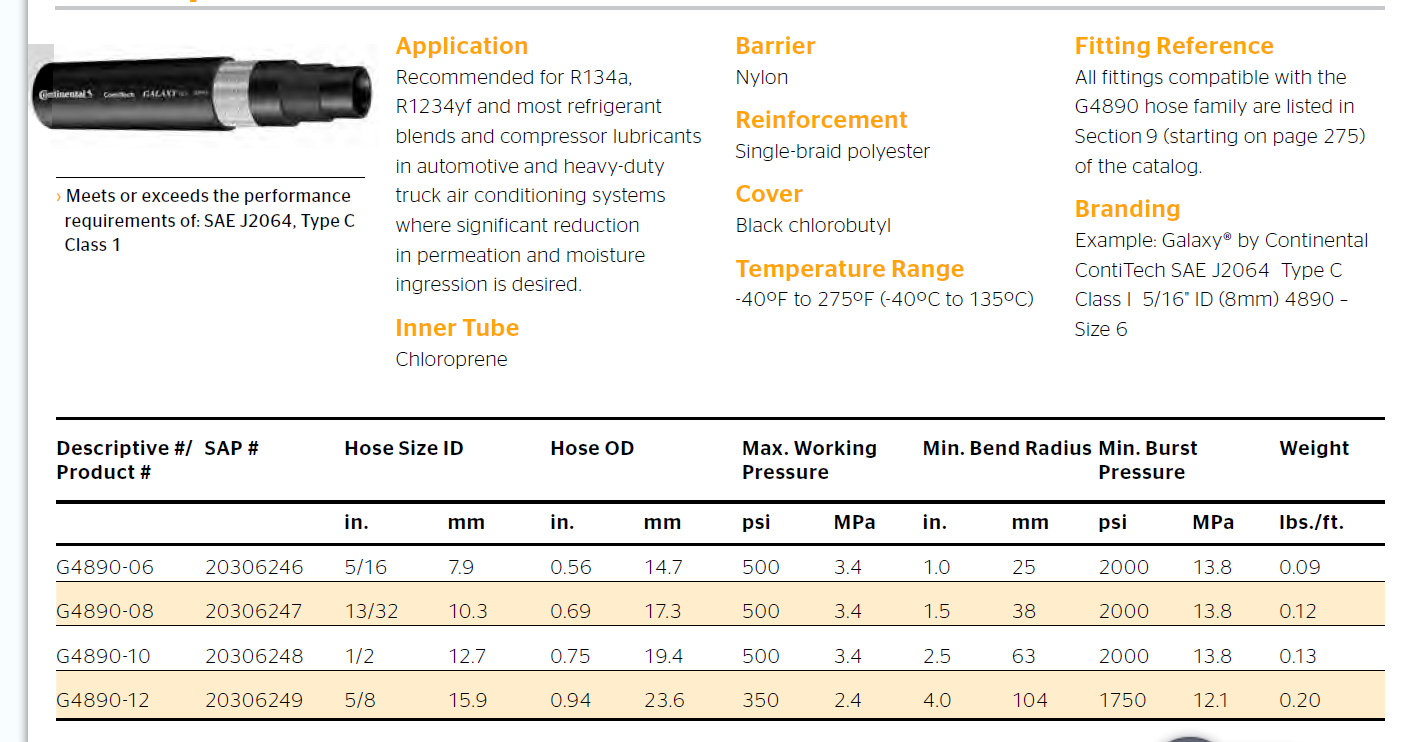diesel fuel hose
Nov . 11, 2024 19:19 Back to list
diesel fuel hose
Understanding Diesel Fuel Hoses Importance and Applications
Diesel fuel hoses are crucial components in various industries where diesel fuel is used, including automotive, marine, and industrial applications. These hoses are specifically designed to transport diesel fuel efficiently and safely, ensuring optimal performance while minimizing the risk of leaks and other hazards. This article explores the essential features, types, and applications of diesel fuel hoses, as well as best practices for maintenance and care.
Importance of Diesel Fuel Hoses
The primary function of diesel fuel hoses is to facilitate the transportation of diesel fuel from storage tanks to engines, pumps, and other machinery. Since diesel fuel is a petroleum-derived product, it possesses unique characteristics, requiring hoses that can withstand certain pressures, temperatures, and chemical compositions. The choice of the right fuel hose is critical not only for performance but also for safety. Leaks or breaks in the hose can lead to environmental hazards, fire risks, and engine malfunctions.
Key Features of Diesel Fuel Hoses
When selecting a diesel fuel hose, several key features must be considered
1. Material Diesel fuel hoses are typically made from synthetic rubber or thermoplastic materials. Synthetic rubber hoses offer excellent resistance to fuel degradation, while thermoplastic hoses provide flexibility and lightweight benefits.
2. Pressure Rating Diesel fuel hoses come with different pressure ratings, indicating the maximum pressure they can handle. Choosing a hose with an appropriate pressure rating is crucial to prevent ruptures.
3. Temperature Resistance Diesel fuel can be subjected to varying temperature ranges, especially in applications involving engines. Hoses must be able to withstand these temperatures without degrading or losing integrity.
4. Chemical Resistance Diesel fuel can contain various additives, and hoses must resist chemical breakdown over time. A hose that can handle these additives will ensure reliable performance and durability.
5. Flexibility and Bend Radius The design and layout of piping systems often require hoses to be flexible and able to bend without kinking. A good diesel fuel hose should maintain its shape and function even when subjected to tight bends.
Types of Diesel Fuel Hoses
There are several types of diesel fuel hoses available, each suited to specific applications
1. Standard Fuel Hose This is the most common type, used in many automotive and machinery applications.
3. Flexible Fuel Hoses These hoses offer increased flexibility, making them ideal for systems where movement and vibration are present.
diesel fuel hose

4. Multi-Use Hoses Some hoses can handle multiple types of fuels, including gasoline and biodiesel, in addition to diesel.
5. Marine Fuel Hoses Specially constructed for maritime applications, these hoses resist environmental factors like saltwater corrosion and UV degradation.
Applications of Diesel Fuel Hoses
Diesel fuel hoses are widely used across various sectors
- Automotive In vehicles, diesel hoses are essential for the delivery of fuel to the engine and ensuring proper engine performance.
- Heavy Machinery Equipment such as bulldozers, excavators, and tractors rely on robust diesel fuel hoses for optimal fuel delivery, ensuring that operations run smoothly.
- Marine In boats and ships, specialized marine diesel fuel hoses are used to transport diesel fuel to engines, accommodating the unique challenges presented by water environments.
- Industrial Diesel fuel hoses are also utilized in generators, pumps, and other industrial equipment that operates on diesel fuel.
Best Practices for Maintenance
To ensure the longevity and integrity of diesel fuel hoses, regular maintenance is essential
1. Regular Inspections Periodically check hoses for signs of wear, cracks, or leaks. Early detection can prevent costly repairs and accidents.
2. Proper Installation Ensure hoses are installed correctly, avoiding sharp bends, kinks, or excessive tension that could lead to damage.
3. Temperature Management Keep hoses away from excessive heat sources, as high temperatures can compromise their integrity.
4. Storage When not in use, store hoses in a cool, dry place to prevent deterioration from environmental conditions.
By understanding the significance of diesel fuel hoses and adhering to best practices for maintenance, industries can enhance performance, ensure safety, and achieve a more sustainable operational footprint. Diesel fuel hoses not only support machinery functionality but also play an integral role in responsible fuel management in various sectors.
